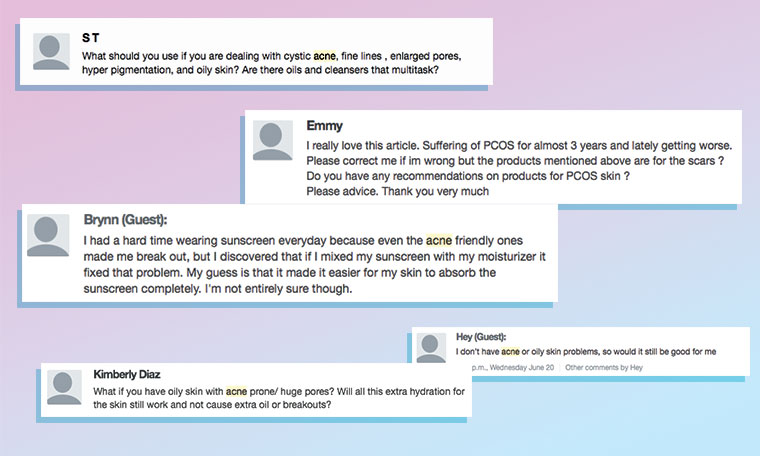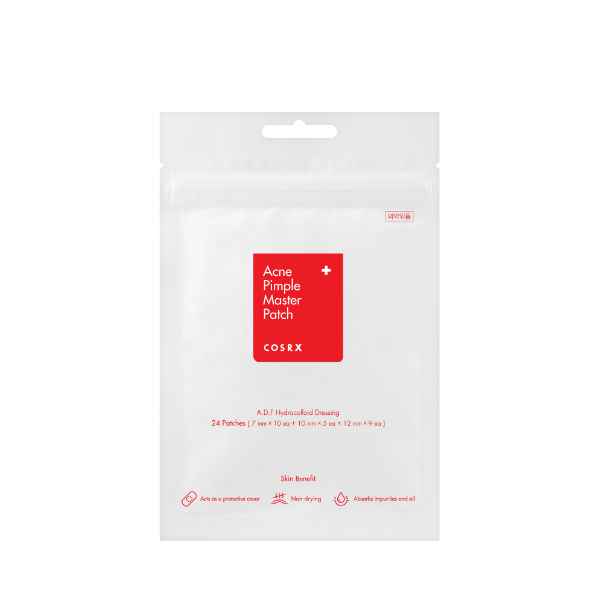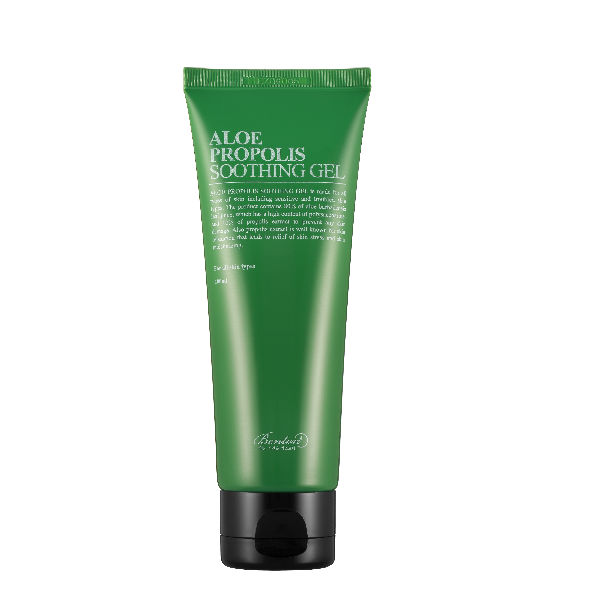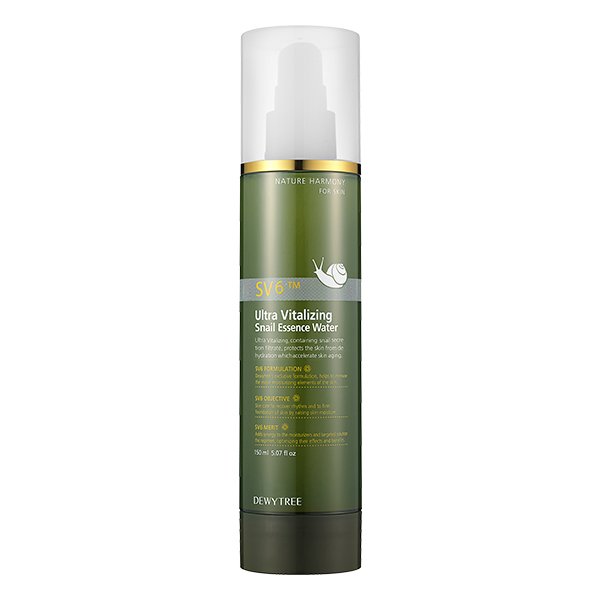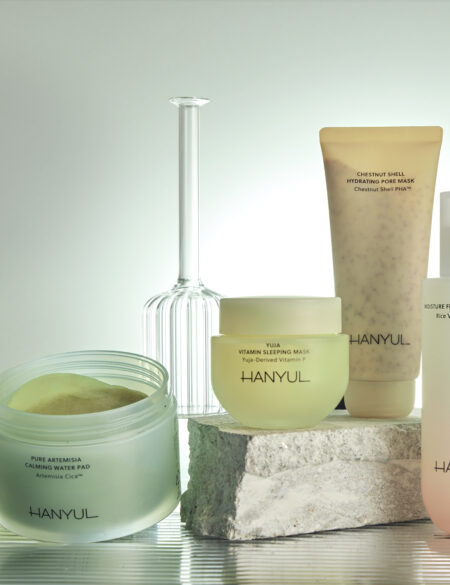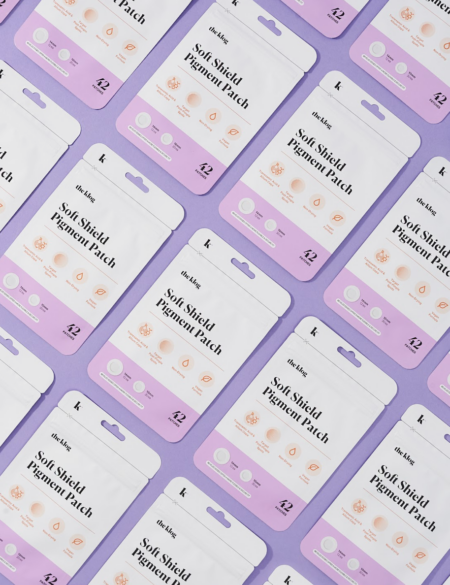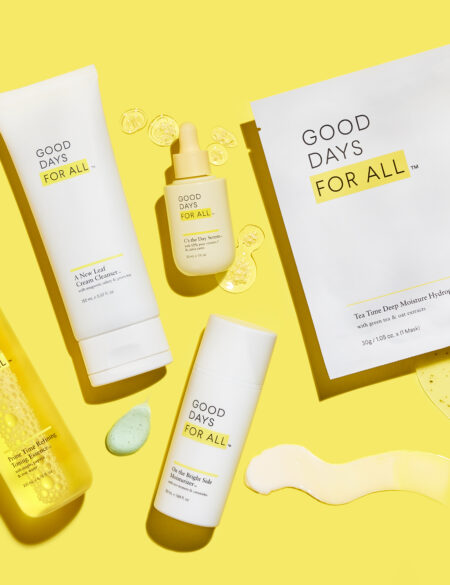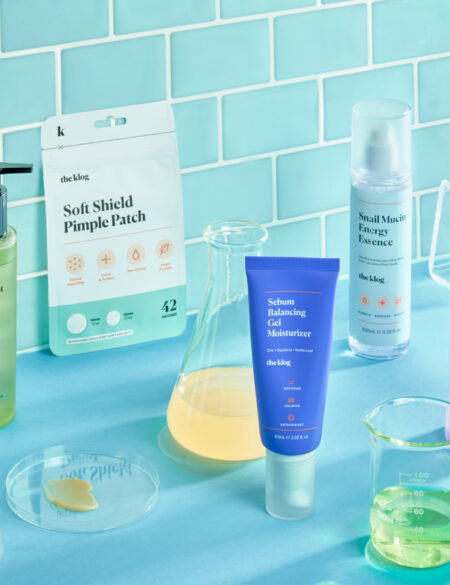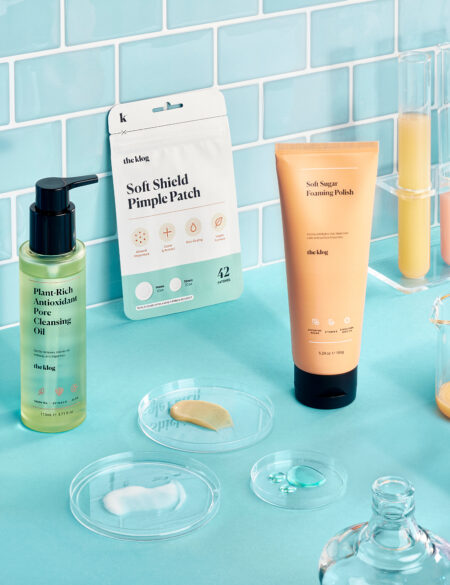Are you stumped on how to get rid of your acne scars? Or maybe you’re not sure how to find a moisturizer that won’t break you out? Here, we share the answers to those questions, plus more common acne-related inquiries we got in 2018.
Acne doesn’t just affect hormonal teens. According to the American Academy of Dermatology, acne is the most common skin condition in the United States. It can also be the trickiest to treat since breakouts come in many forms and can be caused by a variety of things.
It’s no surprise that the topic is one that we consistently get questions about. Below, we answered some of the most common ones we saw in the comments section in 2018.
Can you use pimple patches on cystic acne?
Pimple patches like the Cosrx Acne Pimple Master Patch are best used to absorb gunk from blackheads and whiteheads, so if you place one on an inflamed bump, it may not have much of an effect. Try applying a warm compress on the area for about 15 minutes and repeat daily until it comes to a head. Then apply the patch.
For the less patient among us (raises hand), there are the Acropass Troublecure patches. These are different from the rest in that the circular stickers are dotted with crystallized serum that gently penetrates skin and treats the cyst from within.
Why are my pores getting bigger as I get older and how can I reverse this?
As skin ages, it loses elasticity thanks to factors like sun damage, causing enlarged pores. Enlarged pores can also be caused by dehydrated skin, genetics, or oil and dead skin cell buildup.
RELATED: The Most Common Pore Myths
While this is not exactly reversible, you can improve the appearance of pore size by exfoliating regularly to keep them clear, and protecting your skin from environmental damage by wearing sunscreen daily and using products that contain antioxidants.
Are physical or chemical sunscreens better for acne-prone skin?
Physical or mineral sunscreens (which sit on the surface of skin and deflect UV rays) are known to be non-comedegenic (i.e. non-pore-clogging), however chemical sunscreens (which sink into skin and absorb UV rays), are often more lightweight.
There are pros and cons to both so there’s really no hard and fast answer. Finding the right sunscreen for you may take some trial and error. The texture, ingredient list, and finish (matte, dewy, etc.,) are all things to take into consideration when looking for an SPF that best suits your needs and wants.
The best way to prevent breakouts from sunscreen is to include an oil cleanser in your routine. Oil-based cleansers breakdown and remove oil-based impurities like SPF and sebum better than water-based cleansers.
How can I get rid of acne scars?
So you’ve finally gotten rid of the red spots but now acne scars are standing between you and a truly clear complexion. It’s frustrating, we know. The best ways to smooth and brighten skin and thus reduce the appearance of acne scars, are to use products that contain AHAs (alpha hydroxy acids), like the Dr Oracle A-Thera Tea Tree Peeling Sticks, and vitamin C, like the Cosrx Triple C Lightning Liquid.
Those with textured scars can also consider using a derma roller, which stimulates elastin and collagen and fills in the indentations – or at least makes them more shallow.
To prevent scars from forming the first place, avoid the temptation to pick at and pop zits by applying pimple patches on the affected areas and wear sunscreen daily (UV rays stimulate melanin and can darken acne scars).
Are oil cleansers bad for acne-prone skin?
If you have oily skin, a product with “oil” in the name may sound like the last thing you want to put on your face. While it may seem counterintuitive, some oil-based products can actually help dissolve oil and prevent skin from producing excess sebum in the first place. Oil cleansers are one of them which is why we recommend the double-cleanse method to all skin types.
RELATED: The Most Common Questions About the 10-Step Korean Skin Care Routine
In addition to sebum, oil-based cleansers break down other oil-based impurities like makeup and sunscreen, while water-based cleansers are formulated to remove water-based impurities like sweat and dirt. Using both (oil cleanser first, followed by a water-based cleanser) ensures a thorough cleanse, and thus a more clear complexion.
Aren’t hydrating products going to break me out?
Another product category that some with acne-prone skin are hesitant to use is moisturizer. Like oil cleansers, moisturizer can actually help regulate sebum production since oily skin produces more oil when it’s dehydrated. Moisturizer also helps prevent fine lines and wrinkles from forming and improves skin texture.
The key is to choose the right moisturizer for your skin’s needs. Look for gel or lightweight formulas that are free of occlusive ingredients like mineral oil, petroleum, or silicones. You can even find multi-tasking formulas that, in addition to hydrating ingredients, contain anti-bacterial and anti-inflammatory ingredients like BHAs, green tea, snail mucin, and propolis that help fight and treat acne.
A favorite formula among oily skin types is the Benton Aloe Propolis Soothing Gel.
How do you treat acne specifically from PCOS?
PCOS, or Polycystic Ovary Syndrome, affects one in ten women of childbearing age, according to the US Department of Health. Two of the issues related to the disorder are the overproduction of oil and frequent bouts of hormonal acne.
Earlier this year, Dr. Neil Sadick, a New York City-based dermatologist, told us: “PCOS-dependent acne is more chronic, rather than the regular hormonal acne, and often needs more substantial treatments than regular hormonal acne.”
This means that in addition to products that contain acne-clearing ingredients like salicylic acid and benzoyl peroxide, inflammation-fighting, hydrating, and exfoliating products should all be part of your approach.
For a sample routine for those with PCOS-related acne, click here.
What should I do if I’m battling acne, fine lines, and hyperpigmentation all at the same time?
Unless you’re a teenager or have perfect skin, you likely have more than just one skin concern. Good news: There are many fantastic (and common!) ingredients that target multiple issues.
One of our favorites is centella asiatica. It’s calming, making it great for treating inflammation and redness related to acne, plus it’s rich in antioxidants and promotes collagen production, so it’s an effective anti-ager. Another powerhouse ingredient to look for is snail mucin. Its healing properties are great for treating acne, acne scars, dark spots, and irritation, plus it plumps skin, diminishing the appearance of wrinkles, and effectively hydrates.
The Dewytree Ultra Vitalizing Snail Essence Water, for example, offers soothing, firming, and acne-fighting benefits thanks to an ingredient list that includes snail mucin, aloe leaf extract, and adenosine.


